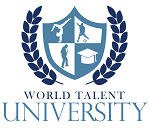The dizzying speed of the modern world puts education at the heart of both personal and community development; its mission is to enable everyone, without exception, to develop all their talents to the full and to realize their creative potential, including responsibility for their own lives and achievement of their personal aims’.
Imagine a university taking such a statement as their starting point – to achieve such a vision would mean the transformation of the current education system.
Years of research around school reform have shown that ’tinkering around the edges won’t help educators meet the challenges that children and young people will face the future. Current interventions are having limited effects’…writes Stoll and Earl
“Interventions such as modern information technology have , as yet , not challenged the basic assumptions of schools with their genesis in an industrial age that hold on to a transmission of knowledge approach to often unwilling students. The challenge of realizing the creative potential of all students requires a personalisation of learning rather than a ‘one size fits all’ mentality where differences are accommodated by ability grouping, tracking or streaming. And this applies as much for primary schools as it does for secondary and university schooling”, they add.
Many countries that focus on National Standards, are looking back to past schooling requirements and, this is worse in countries where national testing is imposed by populist politicians. In such environments, with their focus on literacy and numeracy achievement data, curriculums are narrowed and all too often teachers are forced to teach to the tests for their own survival.
No room then, in such toxic environments, for creativity, talent development or personalisation of learning. And even with such regressive policies ‘the educational achievement’, Stoll and Earl write, ‘between the most and least advantage is still far too wide in many places’. And, it is important to note, this achievement is limited to literacy and numeracy which results in the range of unique talents of students being ignored.
To organize education so that natural active tendencies shall be fully enlisted in doing something, while seeing to it that the doing requires observation, the acquisition of information, and the use of a constructive imagination, is what this university aims to achieve.
